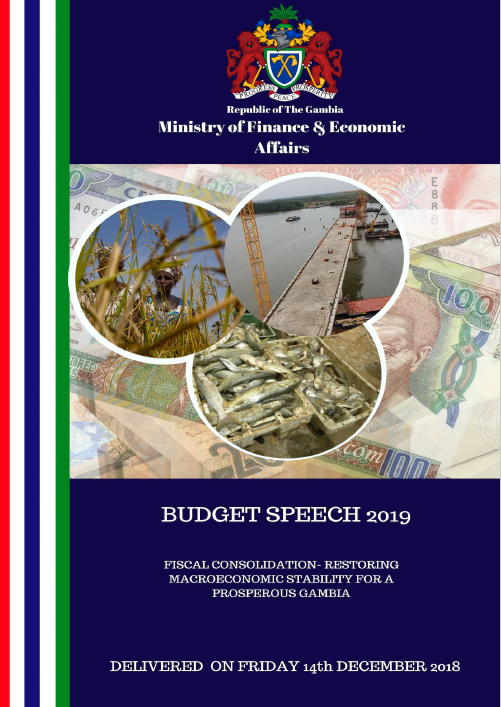By Tumbul Trawally—Seattle, USA
The Budget presented to the National Assembly by the Hon. Minister of Finance, Mambury Njie, was comprehensive but had a lot of misplaced priorities. First, any country that spends more on Foreign Affairs than on Health and Agriculture is going down the wrong path. I mentioned this in a prior posting: In the order of importance, the top five ministries are: Security (Army & Police), Agriculture, Health, Education, and Communications (infrastructure). The Foreign and Finance ministries get all the publicity and attention, but they are less vital to the viability of a country than the above mentioned ministries.
Second, the Supplemental budget of D1.12 billion is an indication that the government is not keeping track of its expenditure, in a timely manner. The number is a relatively high percentage of the overall budget (about D26 billion); therefore, it should have been foreseen. Instead, it was a surprise to the law makers. The Budget Office of the ministry of Finance should be able to keep track of government expenditure—and in this age of computers and smartphones—there is no excuse for not knowing such a large budget shortfall existed. The National Assembly Members are the peoples’ representatives or the board of directors of the entity, if government were a company.
Third, the money borrowed to finance the supplemental budget crowds out the private sector from the money markets. Lenders will lend their money to government, rather than the private sector, because the government has taxing power and, therefore, less risky than businesses and individuals. When businesses don’t have access to the capital markets for funding their enterprises, the GDP growth rate is negatively affected, which results in high unemployment. The heavy borrowing by the government also leads to higher interest rates. The real interest rate of the Gambia is 13.5 percent — but the nominal interest rate, which factors in the inflation, political, and reinvestment risks—is much higher. As the cost of borrowing increases, businesses and individual are less likely to borrow money, which ultimately leads to slow growth and high unemployment. When your youths are dying in the Sahara Desert and the Mediterranean, your top priority should be job creation.
According to the budget, the Agricultural sector is 23 percent of GDP, Industry accounts for 16 percent, and the Services sector accounts for 61 percent. These are numbers that you see in developed countries, not developing countries. At this stage in our development, the Agriculture and Industry should be the largest sectors of our economy. Therefore, government should lay more emphasis on Mechanized agriculture, and Vocational Training for light industries. The 3 stages of development are Agrarian, Manufacturing, and Services. We will not be able to bypass the Agrarian and Manufacturing stages, without a skilled, educated workforce. As a result, we should focus our attention on Agriculture and Education. The State House budget of D600 million is too high. Some of that money should be redirected to the Agriculture, Health, and Education ministries.
There should be more cooperation between the Gambian Armed forces and their Senegalese counterparts. Senegal surrounds Gambia on all but one side, the Atlantic Ocean. The role of the army is to protect a country from external threats. Senegal can provide that protection, with a smaller Gambian army! Our priority should be the creation of a disciplined, educated, and well-trained police force, for maintaining internal security. We can save a lot of money by cooperating with Senegal. Our survival as a country depends very much on our relationship with Senegal.

